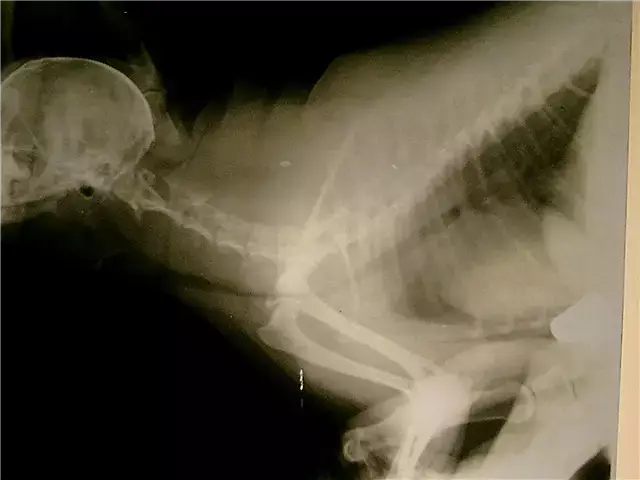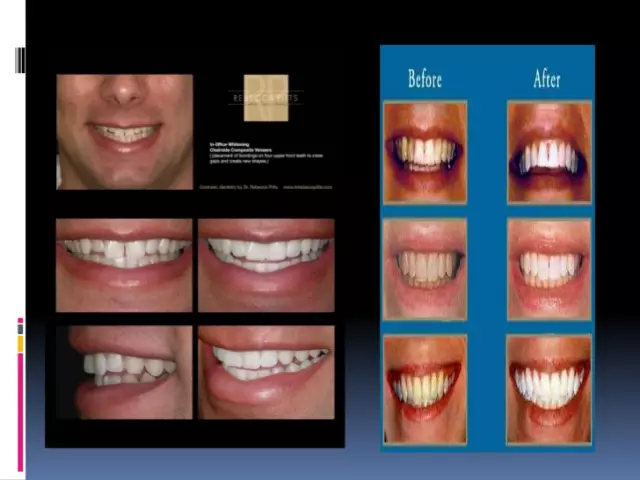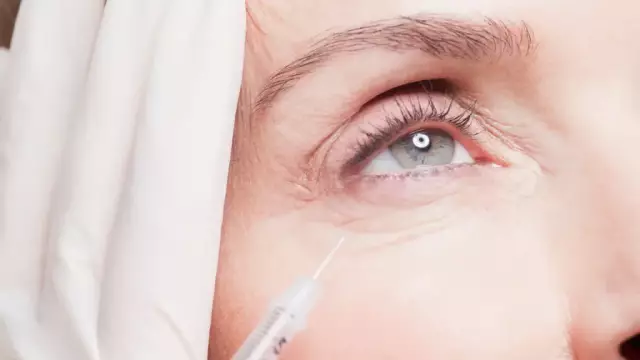- Author Rachel Wainwright [email protected].
- Public 2023-12-15 07:39.
- Last modified 2025-11-02 20:14.
Excedrin
Excedrin: instructions for use and reviews
- 1. Release form and composition
- 2. Pharmacological properties
- 3. Indications for use
- 4. Contraindications
- 5. Method of application and dosage
- 6. Side effects
- 7. Overdose
- 8. Special instructions
- 9. Application during pregnancy and lactation
- 10. Use in childhood
- 11. In case of impaired renal function
- 12. For violations of liver function
- 13. Drug interactions
- 14. Analogs
- 15. Terms and conditions of storage
- 16. Terms of dispensing from pharmacies
- 17. Reviews
- 18. Price in pharmacies
Latin name: Excedrin
ATX code: N02BA71
Active ingredient: acetylsalicylic acid + caffeine + paracetamol (acetylsalicylic acid + caffeine + paracetamol)
Producer: Novartis Consumer Health Inc. (USA)
Description and photo updated: 22.11.2018
Prices in pharmacies: from 193 rubles.
Buy

Excedrin is a combined drug with analgesic, antipyretic, anti-inflammatory and cerebral circulation improving action.
Release form and composition
Dosage form Excedrin - film-coated tablets: oblong, white, engraved with the letter "E" on one side; in a cross section - the core is almost white or white (in a multilayer bag of aluminum foil 2 pcs., in a cardboard box 1 bag; in a blister 10 pcs., in a cardboard box 1, 2 or 3 blisters; in a polypropylene bottle 24 or 50 pcs.., in a cardboard box 1 bottle).
Composition of one tablet:
- active substances: paracetamol - 250 mg, acetylsalicylic acid - 250 mg, caffeine - 65 mg;
- auxiliary components (core): hyprolose, microcrystalline cellulose, stearic acid;
- shell: carnauba wax, white film material (titanium dioxide, hypromellose, propylene glycol, sorbitan laurate, povidone, polysorbate 20, mineral oil, benzoic acid, blue brilliant dye, simethicone emulsion).
Pharmacological properties
Pharmacodynamics
The pharmacological action of Excedrin is due to the combination of its active substances - paracetamol, acetylsalicylic acid and caffeine.
Paracetamol has an analgesic, antipyretic and weak anti-inflammatory effect due to its predominant effect on the centers of pain and thermoregulation in the hypothalamus and a mild effect on the formation of prostaglandins in peripheral tissues.
Possessing analgesic, antipyretic and anti-inflammatory effects, acetylsalicylic acid quickly relieves pain syndrome (especially caused by the inflammatory process), slows down the process of blood clots, moderately inhibits platelet aggregation, and also activates blood microcirculation in the inflammation focus.
Caffeine helps to dilate the blood vessels of skeletal muscle tissues, brain, kidneys and heart, and to reduce platelet aggregation. It has an activating effect on the respiratory and vasomotor centers and on the reflex excitability of the spinal cord. Thanks to caffeine, the feeling of fatigue, drowsiness decreases, and mental and physical performance increases. In the combined composition of Excedrin, caffeine is contained in a small dose, therefore, it practically does not affect the central nervous system, but it has a tonic effect on the vessels of the brain and stimulates cerebral blood flow.
Pharmacokinetics
Some pharmacokinetic characteristics of the active ingredients of Excedrin:
- paracetamol: readily absorbed in the gastrointestinal tract (GIT), the maximum concentration (C max) in the blood plasma after oral administration is reached in 0.5-2 hours. When using usual therapeutic doses, a small amount of the substance binds to blood plasma proteins, however, it increases with increasing dose. Metabolism occurs in the liver. The substance is excreted by the kidneys, mainly in the form of sulfate conjugates and glucuronides, less than 5% of the dose taken is excreted unchanged. Half-life (T 1/2) varies in the range from 1 to 4 hours. A toxic hydroxylated metabolite, which is formed in small amounts in the liver with the participation of mixed oxidases and is usually rendered harmless by binding with reduced glutathione, in case of an overdose, can accumulate in the liver and cause its damage;
- acetylsalicylic acid: completely absorbed in the gastrointestinal tract, rapidly hydrolyzed in the gastrointestinal tract, blood and liver with the formation of salicylates, which are further metabolized, mainly in the liver;
- caffeine: rapidly and completely absorbed in the gastrointestinal tract, C max is achieved within 5 to 90 minutes after taking Excedrin on an empty stomach. About 35% of the taken dose binds to blood plasma proteins. Distributed in all body fluids. It is metabolized almost completely as a result of oxidation, demethylation and acetylation to form the main metabolites of 1-methylxanthine, 7-methylxanthine, 1,7-dimethylxanthine. It is excreted by the kidneys. In adult patients, there is a pronounced variability in individual elimination rates. The average T 1/2 from blood plasma is 4.9 hours (from 1.9 to 12.2 hours).
Indications for use
According to the instructions, Excedrin is used to relieve pain syndrome of moderate and mild intensity, which has a different origin:
- migraine, headache;
- neuralgia;
- myalgia and arthralgia (pain in muscles and joints);
- toothache;
- algodismenorrhea (menstrual pain).
Contraindications
Absolute:
- erosive and ulcerative diseases of the gastrointestinal tract in the acute stage;
- gastrointestinal bleeding;
- severe course of coronary heart disease;
- severe arterial hypertension;
- portal hypertension;
- impaired renal function;
- complete or incomplete combination of bronchial asthma, recurrent polyposis of the nose and / or paranasal sinuses and intolerance to acetylsalicylic acid or other non-steroidal anti-inflammatory drugs (including a history);
- hemophilia;
- hypoprothrombinemia;
- concomitant use of other non-steroidal anti-inflammatory drugs or drugs containing acetylsalicylic acid or paracetamol;
- avitaminosis K;
- glaucoma;
- deficiency of glucose-6-phosphate dehydrogenase;
- hemorrhagic diathesis;
- sleep disturbances, hyperexcitability;
- age up to 15 years;
- pregnancy and lactation period;
- increased individual sensitivity to any component of Excedrin.
It is not recommended to use the drug during surgical procedures accompanied by bleeding.
Caution is required when using Excedrin according to indications in patients with gout, arthritis, liver disease, headaches associated with head injuries, as well as while taking hypoglycemic agents, anticoagulants, drugs containing acetylsalicylic acid or other antipyretic and analgesic components.
Instructions for the use of Excedrin: method and dosage
Excedrin tablets are taken orally, during or after meals.
Adults and adolescents over 15 years of age are advised to take 1 tablet every 4-6 hours. The average daily dose is 3-4 tablets, the maximum daily dose is 6 tablets.
When the first signs of migraine appear, take 2 tablets.
After taking 2 tablets, pain relief (including headache) usually occurs in 15 minutes, in case of migraine - in 30 minutes.
Without a doctor's recommendation, you should not take Excedrin for more than 5 days with pain syndrome, more than 3 days for migraine.
Side effects
During the period of treatment with Excedrin, side reactions such as nausea, vomiting, gastralgia, nephrotoxicity, hepatotoxicity, erosive and ulcerative lesions of the gastrointestinal tract, tachycardia, bronchospasm, increased blood pressure, allergic reactions are possible.
With prolonged use of the drug, the following reactions may develop: headache, dizziness, tinnitus, visual impairment, hypocoagulation, decreased platelet aggregation, hemorrhagic syndrome (bleeding of the gums, nosebleeds, purpura and others), deafness, kidney damage with papillary necrosis, syndrome Stevens-Johnson (malignant exudative erythema), Lyell's syndrome (toxic epidermal necrolysis), Reye's syndrome in children (vomiting, metabolic acidosis, hyperpyrexia, decreased liver function, disorders of the psyche and nervous system).
Overdose
Probable symptoms of an overdose due to the presence of active ingredients included in Excedrin:
- paracetamol (when used in doses exceeding 10-15 g per day): during the first 24 hours - nausea, pallor of the skin, vomiting, abdominal pain, anorexia, metabolic acidosis, impaired glucose metabolism. In the period from 12 to 48 hours after an overdose, symptoms of liver dysfunction may appear. In case of severe overdose, acute renal failure with tubular necrosis (including in the absence of severe liver damage), arrhythmia, pancreatitis, liver failure with progressive encephalopathy, coma, and death are possible. In adult patients, the hepatotoxic effect develops when taking a dose of 10 g or more;
- acetylsalicylic acid (when used in doses over 150 mg / kg): with mild intoxication - nausea, vomiting, blurred vision, tinnitus, severe headache, dizziness; in case of severe overdose - hyperventilation of the lungs of central origin (cold clammy sweat, choking, shortness of breath, cyanosis, respiratory paralysis), respiratory acidosis. The greatest risk of chronic intoxication is observed in children and elderly patients when using more than 100 mg / kg / day for several days. Patients with severe and moderate poisoning require hospitalization;
- caffeine (when taken in doses of 300 mg per day): ringing in the ears, anxiety, motor restlessness, agitation, agitation, gastralgia, confusion, dehydration, delirium, tachycardia, hyperthermia, arrhythmia, headache, frequent urination, increased pain or tactile sensitivity, muscle twitching or tremors, nausea, vomiting (sometimes with blood), epileptic seizures (in severe overdose - tonic-clonic).
In cases of Excedrin overdose, it is recommended to monitor the electrolyte balance and acid-base state. Taking into account the patient's metabolic state, sodium bicarbonate, sodium citrate or sodium lactate should be administered. The excretion of acetylsalicylic acid is enhanced by the increasing alkalinity of urine. In the first 4 hours after taking an increased dose, gastric lavage, provoking vomiting, taking activated charcoal, laxatives are recommended, and 8-9 hours after an overdose within 8 hours - the introduction of SH-group donors and precursors of the synthesis of glutathione methionine and acetylcysteine.
special instructions
If after taking Excedrin there is no improvement in the condition, there is a deterioration or new side effects appear, you should immediately seek medical help.
When using the recommended doses of the drug, the body receives the same amount of caffeine that is contained in one cup of natural coffee. Therefore, in order to avoid the occurrence of nervous excitement, irritability, heart palpitations and insomnia due to an overdose of caffeine, the consumption of caffeine-containing products should be reduced while using Excedrin.
In case of suspicion of an overdose, even in the absence of symptoms, you should immediately consult a doctor.
It is recommended to refrain from drinking alcohol while using Excedrin due to the high risk of developing liver damage and gastrointestinal bleeding.
In case of an impending surgical intervention, it is necessary to inform the doctor in advance about taking Excedrin, since acetylsalicylic acid affects blood clotting.
In patients with a predisposition, the drug can cause a gout attack due to the fact that low doses of acetylsalicylic acid reduce the excretion of uric acid.
With prolonged use of Excedrin, it is necessary to monitor the functional state of the liver and the picture of peripheral blood.
Influence on the ability to drive vehicles and complex mechanisms
The effect of the drug on the ability to drive transport and mechanisms was not reported.
Application during pregnancy and lactation
Although the use of acetylsalicylic acid in the second trimester of pregnancy is permitted, the safety of using the combination of active components of Excedrin in pregnant and lactating women has not been studied enough. Therefore, it is prohibited to prescribe the drug in all trimesters of pregnancy and during lactation.
Pediatric use
Taking Excedrin according to indications for children under 15 years of age is contraindicated due to the risk of developing Reye's syndrome with hyperthermia against the background of viral infectious diseases.
With impaired renal function
It is not recommended to prescribe the drug to patients with impaired renal function.
For violations of liver function
With liver diseases, Excedrin should be taken with caution.
Drug interactions
The use of Excedrin at the same time as certain drugs can lead to the development of the following effects:
- heparin, indirect coagulants, reserpine, steroid hormones and hypoglycemic drugs: increasing their action;
- methotrexate, nonsteroidal anti-inflammatory drugs: increased risk of side effects;
- furosemide, spironolactone, antihypertensive drugs, anti-gout drugs that promote the excretion of uric acid: a decrease in their effectiveness;
- rifampicin, barbiturates, salicylamide, antiepileptic drugs and other inducers of microsomal liver enzymes: increased formation of toxic metabolites of paracetamol that affect liver function;
- metoclopramide: accelerating the absorption of paracetamol;
- chloramphenicol: an increase in its T 1/2 by five times;
- anticoagulants (coumarin derivatives): enhancing their action with repeated administration of paracetamol;
- ergotamine: accelerating its absorption;
- alcoholic beverages: an increased risk of developing hepatotoxic effects.
Analogs
Excedrin analogues are: Aquacitramon, Kofitsil-plus, Citramarine, Citramon P, Citramon Ultra, Citrapar and others.
Terms and conditions of storage
Store at a temperature not exceeding 25 ° C.
Keep out of the reach of children.
Shelf life is 2 years.
Terms of dispensing from pharmacies
Available without a prescription.
Reviews about Excedrin
In reviews of Excedrin, users report a discrepancy between the price and quality of the drug. Having a high cost, the tablets are not effective enough for migraines and severe headaches.
Price for Excedrin in pharmacies
The price for Excedrin per package is approximately: 10 tablets - 180 rubles, 20 tablets - 270 rubles.
Excedrin: prices in online pharmacies
|
Drug name Price Pharmacy |
|
Excedrin Excedrin for headaches and migraines, tablets, 10 pcs. 193 r Buy |
|
Excedrin film-coated tablets 10 pcs. 193 r Buy |
|
Excedrin film-coated tablets 20 pcs. 335 RUB Buy |
|
Excedrin Excedrin for headaches and migraines, tablets, 20 pcs. 364 RUB Buy |

Maria Kulkes Medical journalist About the author
Education: First Moscow State Medical University named after I. M. Sechenov, specialty "General Medicine".
Information about the drug is generalized, provided for informational purposes only and does not replace the official instructions. Self-medication is hazardous to health!






